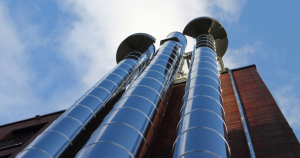
Russia wins from Europe’s energy crisis — but only modestly

Europe’s energy crisis has offered President Vladimir Putin a rare opportunity to flex his half-forgotten gas diplomacy muscles. Russia will benefit from rising gas prices, although state-owned gas giant Gazprom will not post the kind of super-profits some expect.
- The turbulence on the gas market last week was unprecedented. Benchmark European gas prices at the Dutch TTF hub surged close to $2,000 Wednesday before dropping below $1,000. As prices approached their peak, Putin gave a signal designed to calm the market. At an energy meeting, Putin announced Russia was supplying Europe with 8 percent more gas than scheduled and was closing in on an all-time annual record. He promised gas pipeline Nord Stream 2 “would cool the situation a little” and chided the European Union for trying to move away from long-term contracts. At the same time, he couldn’t resist stomping on Ukraine, whose gas transit system, he said, “hasn’t been repaired in decades.” Putin’s underlying message was that Russia is ready to help Europe — but on its own terms. He warned that: “gas is not like watches, underpants, ties, or even oil, which can be stored anywhere”.
- As the world’s biggest producer and exporter of gas, Russia will inevitably benefit from rising prices. But it’s not as simple as it might seem. Gazprom, which holds a monopoly on pipeline exports, does not use spot prices for most of its contracts: only 15 percent of Russian exports are sold at spot prices, according to analysts at investment bank Renaissance Capital. Instead, most gas supplies are based on forward contracts that can have very different terms, explained Vasily Tanurkov, head of corporate ratings at Russian ratings agency ACRA. “Typically, in October, Gazprom’s sales price is the average price of October 2021 futures over the past 12 months,” he said. This means the current price surge will gradually be reflected in rising prices over the next 12 months.
- Nor will Gazprom’s financial windfall from the current situation be eye-watering. It will, for example, be significantly less than Norway’s state-owned energy giant Equinor, which does most of its trading at spot prices, explained Dmitry Marinchenko, a senior director at ratings agency Fitch.
- According to current rules, all revenue from oil and gas exports above a $44.2 per barrel threshold must be diverted to Russia’s National Welfare Fund. Moreover, the government is, traditionally, far more focused on oil prices than what gas is worth. “Gas exports in themselves are [worth] three times less than exports of oil and related oil-products,” said Renaissance Capital chief economist Sofia Donets.
Why the world should care: According to the International Energy Agency, Russia could supply significantly more gas to Europe – up to about 100 million cubic meters per day. But many experts question whether this is actually true. Russia’s gas supply system is technically complex, and such an increase would require far more than merely opening a tap.




